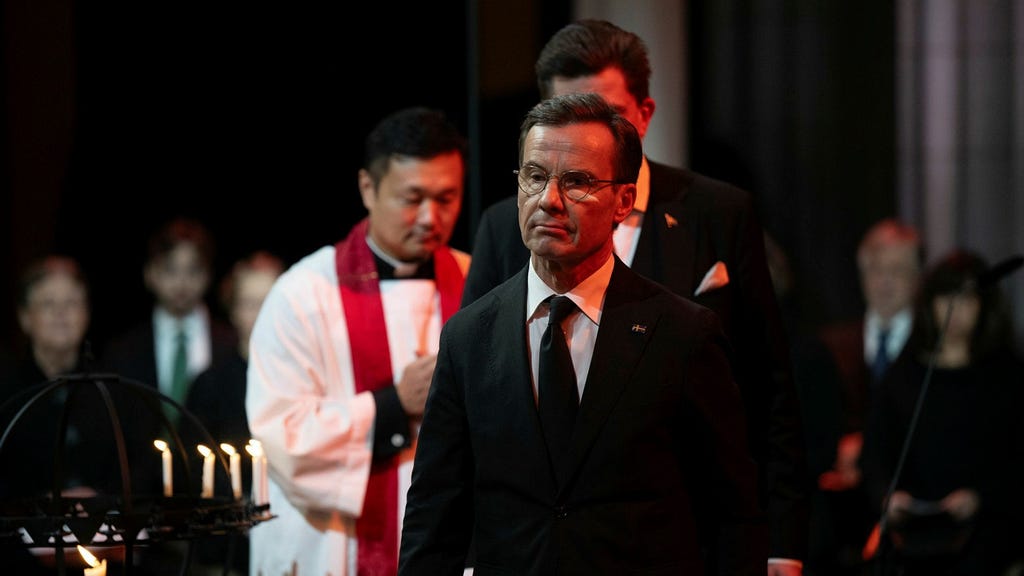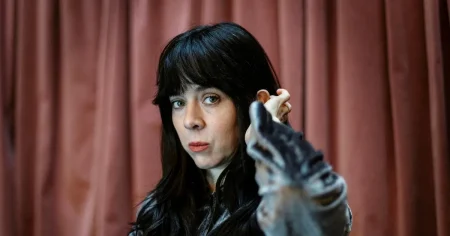The 26th of December 2024 marked a somber two-decade anniversary of the devastating Indian Ocean earthquake and tsunami, a catastrophe that claimed nearly 230,000 lives, including 543 Swedes. Twenty years after the waves receded, the scars remain, both visible and invisible, etched into the hearts of individuals, families, and nations. Sweden, deeply affected by the loss of so many of its citizens, held a national memorial service at Uppsala Cathedral to commemorate the victims and offer solace to those still grappling with the aftermath. The service, held at 4 pm, served as a poignant reminder of the enduring impact of this natural disaster and the long road to healing for those affected. The event stood as a testament to the shared grief and the enduring spirit of remembrance.
The Archbishop of the Church of Sweden, Martin Modéus, presided over the memorial service, acknowledging the diverse experiences of those affected by the tragedy. He recognized the passage of time and the varying degrees of healing, emphasizing that while some may have found a measure of peace and seen light return to their lives, others continue to relive the horrors of that day, waking each morning with the weight of memories from December 26, 2004. Archbishop Modéus’s words underscored the profound and lasting emotional toll of the tsunami, highlighting the ongoing need for empathy and understanding from those who may not fully grasp the enduring nature of such trauma. His message served as a reminder that grief has no timeline and that healing is a personal and often complex journey.
The memorial service was attended by a range of individuals touched by the tragedy, including survivors, bereaved families, and prominent figures such as King Carl XVI Gustaf and Queen Silvia, Prime Minister Ulf Kristersson, and Speaker of the Riksdag Andreas Norlén. The presence of these dignitaries reflected the national significance of the event and the collective mourning of the Swedish people. The gathering symbolized a shared sense of loss and a commitment to remembering those lost in the disaster. The attendance of survivors and bereaved families served as a poignant reminder of the human cost of the tsunami, placing individual experiences at the heart of the commemoration.
The ceremony itself was a tapestry of remembrance, weaving together hymns and speeches that offered both solace and reflection. Music provided a comforting backdrop, while the spoken words offered messages of hope and resilience. The service provided a space for collective mourning and offered an opportunity for the nation to come together in remembrance. The combination of music and spoken word created a powerful and emotive atmosphere, allowing attendees to reflect on the impact of the disaster and to find solace in shared experience.
While King Carl XVI Gustaf had delivered a memorable speech for the tsunami victims at a ceremony in 2005, his role in the 2024 memorial service was one of quiet reflection and symbolic action. Rather than addressing the gathering from the podium, he chose to light a candle in memory of the victims, a gesture shared with Queen Silvia. This simple act, laden with meaning, spoke volumes about the enduring grief and the continuing process of remembrance. The lighting of the candles served as a visual representation of the lives lost, a silent tribute to those who perished in the disaster.
The story of Victor Israelsson, who tragically lost his entire family in the tsunami, epitomizes the profound personal losses suffered by so many. His story serves as a stark reminder of the devastating impact of the disaster on individual lives and families. His experience, shared by numerous others, underscores the human dimension of this large-scale tragedy, highlighting the individual stories of loss and grief that lie behind the statistics. The inclusion of personal narratives like Victor’s helps to contextualize the scale of the disaster and personalize the collective mourning, emphasizing the human toll beyond the sheer numbers. The ongoing remembrance of these individual stories ensures that the human impact of the tsunami is never forgotten.














